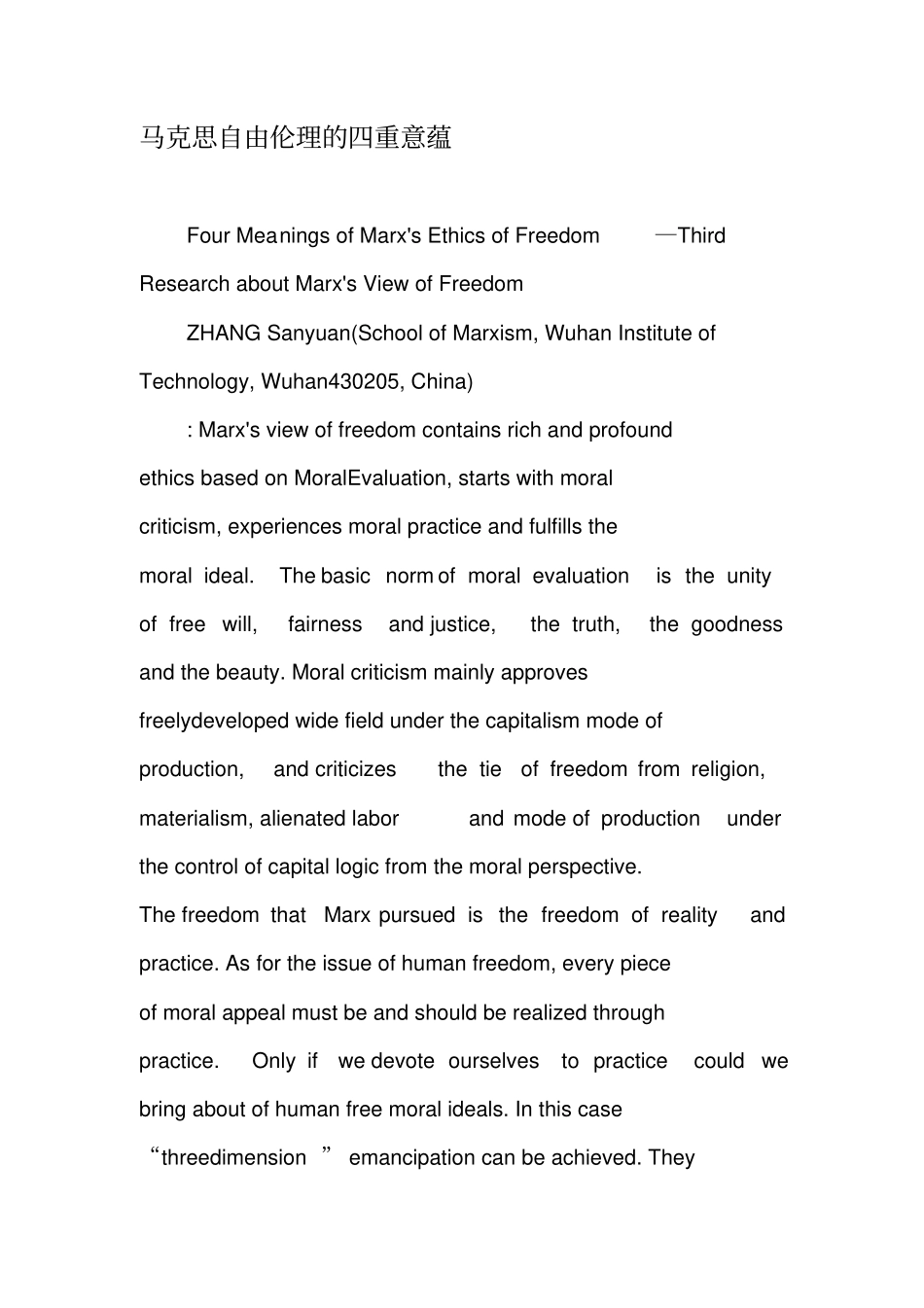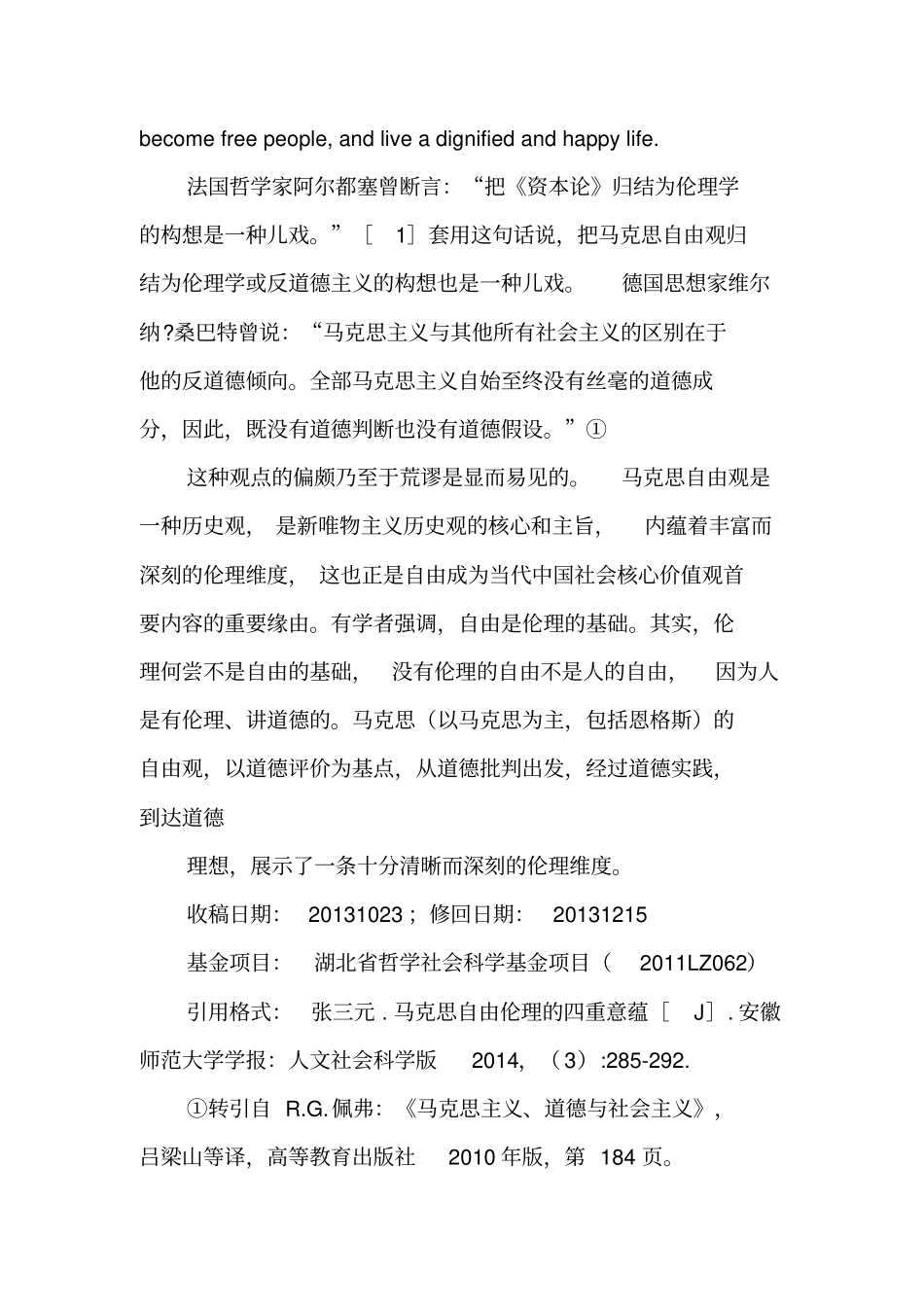马克思自由伦理的四重意蕴Four Meanings of Marx's Ethics of Freedom―Third Research about Marx's View of Freedom ZHANG Sanyuan(School of Marxism, Wuhan Institute of Technology, Wuhan430205, China) : Marx's view of freedom contains rich and profound ethics based on MoralEvaluation, starts with moral criticism, experiences moral practice and fulfills the moral ideal. The basic norm of moral evaluation is the unity of free will, fairness and justice, the truth, the goodness and the beauty. Moral criticism mainly approves freelydeveloped wide field under the capitalism mode of production, and criticizes the tie of freedom from religion, materialism, alienated labor and mode of production under the control of capital logic from the moral perspective. The freedom that Marx pursued is the freedom of reality and practice. As for the issue of human freedom, every piece of moral appeal must be and should be realized through practice. Only if we devote ourselves to practice could we bring about of human free moral ideals. In this case “threedimension ” emancipation can be achieved. They become free people, and live a dignified and happy life. 法国哲学家阿尔都塞曾断言:“把《资本论》归结为伦理学的构想是一种儿戏。”[1]套用这句话说,把马克思自由观归结为伦理学或反道德主义的构想也是一种儿戏。德国思想家维尔纳?桑巴特曾说:“马克思主义与其他所有社会主义的区别在于他的反道德倾向。全部马克思主义自始至终没有丝毫的道德成分,因此,既没有道德判断也没有道德假设。”① 这种观点的偏颇乃至于荒谬是显而易见的。马克思自由观是一种历史观, 是新唯物主义历史观的核心和主旨,内蕴着丰富而深刻的伦理维度, 这也正是自由成为当代中国社会核心价值观首要内容的重要缘由。有学者强调,自由是伦理的基础。其实,伦理何尝不是自由的基础,没有伦理的自由不是人的自由,因为人是有伦理、讲道德的。马克思(以马克思为主,包括恩格斯)的自由观,以道德评...


